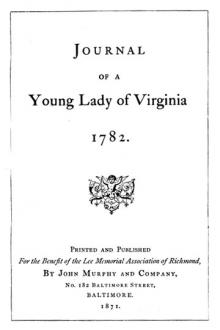The Joker, Edgar Wallace [books you have to read TXT] 📗

- Author: Edgar Wallace
- Performer: -
Book online «The Joker, Edgar Wallace [books you have to read TXT] 📗». Author Edgar Wallace
‘I’m the young woman,’ smiled Aileen, who had a soft spot for age. She
grew a little uncomfortable under the silent scrutiny that followed.
‘You’re a typewriter?’
‘A typist—yes. I am Mr Stebbings’s secretary.’
‘Stebbings!’
Mrs Edwins’ voice was surprisingly harsh and loud. The sudden change
which came to her face was remarkable.
Eyes and thin lips opened together in startled surprise.
‘Stebbings? The lawyer? You’ve come here from him?’
For a second the girl was too startled to reply. ‘Yes… Mr Harlow asked
that I be sent; his secretary was ill—’
‘Oh—that’s it!’ Relief unmistakable.
And here it flashed on the girl that this must be Mrs Edwins—that L.
Edwins to whom reference had been made in the will of the late Miss Mercy
Harlow. Perhaps, her nerves on edge, the woman received the thought, for
she said quickly:
‘I am Mrs Lucy Edwins—Mr Harlow’s housekeeper.’
Aileen murmured some polite commonplace and wondered what was coming
next. Nothing apparently, for, with a quick glance round the room, the
woman sailed out, her hands still clasped before her, leaving the girl to
her penitence and self-reproach. And these distresses were inevitable. A
prying maid (she told herself) who read her mistress’s letters and poked
into the mysteries of locked drawers was a pattern of decorum compared
with a secretary who yet must inspect the waste-paper of a chance
employer. She was of a mind to throw the paper into the fire, but it was
natural that she should find excuses for her conduct. And her excuse
(stoutly offered and defended to herself) was Jim Carlton and the vague
familiarity of ‘Marling’.
Ten minutes passed and then Mr Harlow came slowly into the room. The door
closed with a click behind him and he stood before her on the very spot
where Mrs Edwins had conducted her cold survey.
‘My housekeeper came in, didn’t she?’
‘Yes’. She wondered what was coming next.
‘My housekeeper’—he spoke slowly—‘is the most unbalanced female I have
ever known! She is the most suspicious woman I have ever known; and the
most annoying woman I am ever likely to know.’ His eyes did not leave her
face. ‘I wonder if you know why I sent for you?’
The question took her aback for the moment.
‘Don’t say to write a letter,’ he smiled. ‘I really wanted no letter
written! It was an excuse to get you here alone for a little talk. And
the fact that you have not gone pale and that you display no visible
evidence of agitation is very pleasing to me. If you had, I should have
opened the door to you and bid you a polite good night.’ He waited for
her to speak.
‘I don’t quite understand what you want, Mr Harlow.’
‘Really? I was afraid that you would—and understand wrongly!’
He strode up and down the library, his hands under his coat tails, his
head lifted so that he seemed immediately interested in the cornice.
‘I want a view—an angle. I can’t get that from any commonplace person.
You arc not commonplace. You’re not brilliant either—forgive my
frankness. You’re a woman, perhaps in love—perhaps not. I don’t know,
but a normal soul. You have no interest to serve.’
He stopped abruptly, looked at her, pointing to the door. ‘That door is
locked,’ he said. ‘There is nobody in the house but myself and my
housekeeper. The telephone near your right hand is disconnected. I am
very fond of you!’
He paused and then nodded approvingly.
‘A little colour—that is annoyance. No trembling—that may come later.
Will you be so good as to press the bell—you will find it… yes, that is
it.’
Mechanically she had obeyed, and almost immediately the door opened and a
tall manservant came in.
‘I want you to wait in the servants’ hall until this young lady has gone,
Thomas—I have a letter I wish posted.’
The man bowed and went out. Mr Harlow smiled.
‘That disproves two statements I made to you—that the door was locked
and that we were alone in the house. Now I think I know you! I wasn’t
certain before. And of course I’m not fond of you—I like you though. If
you feel inclined to call up James Carlton, the telephone is through to
the exchange.’
‘Will you please tell me,’ she said quietly, ‘what all this means?’
He stood by the desk now, his white fingers beating a noiseless tattoo.
‘I know you, that is the point,’ he said. ‘I can now speak to you very
plainly. Would you, for a very large financial consideration, marry a man
in whom I am greatly interested?’
She shook her head and he approved even of the refusal.
‘That is splendid! You did not say I was insulting you, or that you could
not marry a man for money—none of the cliches of the film or the
novelette! You would have disappointed me if you had.’
Aileen made a discovery that left her doubting her own sanity. She liked
this man. She believed in his sincerity. A crooked dealer he might be,
but upon a plane which was beyond her comprehension. In the less lofty
regions in the levels of human intercourse he was beyond suspicion. She
felt curiously safe with him and was worried, as one who was in the
process of changing a settled opinion in the face of a prejudiced habit
of thought.
He had the face of a materialist—the blue of his eyes was (Jim had told
her) common to great generals and great murderers. The thick lips and
fleshy nose were repellent, Yet she lived consciously in a world of men
and women—she did not look for god or hero in any man. None was wholly
good; none was wholly bad, except in the most artificial of dramas.
‘I wonder if I know what you are thinking about?’
She mistrusted him now, having a sense of his uncanny power of
mind-reading.
‘You are saying “I wonder if he is as great a scoundrel as people like
Carlton say?” How shall you measure me? It is very difficult, not because
I represent greatness, but because the canvas on which I work is immense.
Miss Rivers, I hoped that you were heart-free.’
‘I think I am,’ she said.
‘Which means that you are not. I wanted you to marry somebody I love; the
sweetest nature in the world. Something I have created out of confusion
and chaos and shining lights and mysterious sounds. I talk like a
divinity, but it is true. For years I have been looking for a wife.’ He
leaned forward over the desk and his voice sank. ‘Shall I tell you
something?’
And though she made no sign, he read her interest aright.
‘If you had said “yes”, my day would have been done. I am selfishly
relieved that you declined. But if it had been “yes”, all this would have
crumbled into dust-all the splendours of the Splendid Harlow! Dust and
memories and failure!’
For a moment she thought he had been drinking and that she had not
detected his condition before. But he was sober enough and very, very
sane.
‘Strange, isn’t it? I like you. I like Carlton—unscrupulous but a nice
man. He is waiting outside this house for you. Also a fellow-lodger of
yours, a Mr Brown, who followed you here.’
She gasped at this.
‘He is a detective. Carlton is scared for you—he suspects me of
harbouring the most sinister plans.’ His chuckle had a rich music in it.
‘Maybe I can help you some time. I’d love to give you a million and see
what you would do with it.’
He held out his hand, and she took it without hesitation.
‘You haven’t told me whom I was to marry?’
‘A man with a golden beard,’ he laughed. ‘Forgive my little joke!’
She went out of the house bewildered and stopped on the step with a cry
of wonder. Jim Carlton was standing on the sidewalk; and with him was Mr
Brown, her fellow-boarder.
Mr Harlow waited until the door had closed upon his visitor and was
stepping into the lift when his yellow-faced housekeeper appeared
noiselessly from the direction of the servants’ hall.
‘What did that girl want?’ she asked.
‘Liberty of action,’ he replied.
‘I don’t understand what you’re talking about half the time,’ she
complained. ‘I wouldn’t be surprised if she wasn’t a spy.’
‘Nothing would surprise you, my dear woman,’ he said, his hand on the
grille of the elevator.
‘I don’t like the look of her.’
‘I, on the contrary, like the look of her very much.’ He was resigned to
the conversation. ‘I asked her to marry.’
‘You!’ she almost screamed.
‘No.’ He jerked his head to the ceiling and broke in upon her violent
comment. ‘I’m not mad. I am very clever. I can face truth—that is the
cleverest thing any man can do. I’m going up to Saul Marling.’
Her shrill voice followed him up the elevator shaft.
‘Fantastical nonsense… wasting your time!’
He closed the door of Marling’s apartment behind him and sank into a deep
chair with a groan of relief. The bearded man, his face shadowed by a
reading shade, looked round, chin on palm.
‘She has a tantrum today,’ he said, nodding his head wisely. ‘She was
quite rude when I complained about the fish.’
‘The devil she was!’ Harlow sat upright, was on the point of rising but
thought better of it. ‘You must have what you wish, my dear Saul. I will
raise Cain if you don’t. What are you reading?’
Marling turned over the book to assure himself of the title.
‘The Interpretation of Dreams,’ he read.
‘Freud! Chuck it in the waste-paper basket,’ scoffed Harlow.
‘I don’t understand it very well,’ admitted his companion.
‘The man who can interpret other people’s dreams can interpret other
people’s thought,’ said Harlow. ‘I have been dreaming for you, Saul
Marling. I dreamt a wife for you, but she would have none of it.’
‘A wife!’ said the startled Marling, his hand trembling in his agitation.
‘I don’t want a wife—you know that!’
Mr Harlow lit a cigar.
‘Yes—but she doesn’t want a husband—I know THAT. Dreams, huh?’ He
laughed to himself, the other man watching him curiously.
‘Do you ever dream?’ he asked with a timidity which was almost pathetic.
‘I? Lord, yes! I dream of jokes.’
Marling could not understand this: this strong man had talked about
‘jokes’ before, and when they were elaborated they had not amused anybody
but Mr Harlow.
It is a peculiar trait of the English criminal that he never describes
his unlawful act or acts by grandiloquent terms. Crime of all kind,
especially crime against the person, is a ‘joke’. The man who holds up a
cashier has ‘had a joke with him’; the confidence swindler ‘jokes’ his
victim; a warehouse theft would be modestly described in the same way.
Mr Stratford Harlow once heard the term employed and never forgot it.
This cant phrase so nearly covered his own mental attitude towards his
operations; a good joke would produce the same emotions of mind and body.
Once he had written to an important rubber house offering to take its
entire stock at a price which would show a fair profit to the seller. The
house and its affiliated concerns smelt a forced buying and the price of
rubber rose artificially.
He waited three months, buying everywhere





Comments (0)